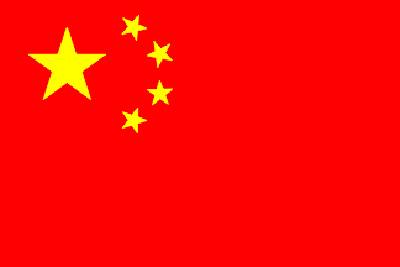Wall Street Journal: Farewell to America's China Station
by Norman Adams on May 23, 2010 at 3:43 PM
 The following is a great article written by Mark Helprin in the Wall Street Journal regarding the trouble in China:
The following is a great article written by Mark Helprin in the Wall Street Journal regarding the trouble in China:
The United States and China are on a collision course in the Western Pacific. Far sooner than once anticipated, China will achieve effective military parity in Asia, general conventional parity, and nuclear parity. Then the short road to superiority will be impossible for it to ignore, as it is already on its way thanks to a brilliant policy borrowed from Japan and Israel.
That is, briefly, since Deng Xiaoping, China has understood that, without catastrophic social dislocation, it can leverage its spectacular economic growth into X increases in per-capita GDP but many-times-X increases in military spending. To wit, between 1988 and 2007, a tenfold increase in per-capita GDP ($256 to $2,539) but a 21-fold purchasing power parity increase in military expenditures to $122 billion from $5.78 billion. The major constraint has been that an ever increasing rate of technical advance can only be absorbed so fast even by a rapidly modernizing military.
Meanwhile, in good times and in bad, under Republicans and under Democrats, with defense spending insufficient across the board the United States has slowed, frozen, or reversed the development of the kind of war-fighting assets that China rallies forward (nuclear weapons, fighter planes, surface combatants, submarines, space surveillance) and those (antisubmarine warfare capacity, carrier battle groups, and fleet missile defense) that China does not yet need to counter us but that we need to counter it.
We have provided as many rationales for neglect as our neglect has created dangers that we rationalize. Never again will we fight two major adversaries simultaneously, although in recent memory this is precisely what our fathers did. Conventional war is a thing of the past, despite the growth and modernization of large conventional forces throughout the world. Appeasement and compromise will turn enemies into friends, if groveling and self-abasement do not first drive friends into the enemy camp. A truly strong country is one in which people are happy and have a lot of things, though at one time, as Edward Gibbon describes it in "The Decline and Fall of the Roman Empire," "So rapid were the motions of the Persian cavalry," that the prosperous and relaxed citizens of Antioch were surprised while at the theater, and slaughtered as their city burned around them. And the costs of more reliable defense and deterrence are impossible to bear in this economy, even if in far worse times America made itself into the greatest arsenal the world has ever known, while, not coincidentally, breaking the back of the Great Depression.
China is on the cusp of being able to use conventional satellites, swarms of miniature satellites, and networked surface, undersea, and aerial cuing for real-time terminal guidance with which to direct its 1,500 short-range ballistic missiles to the five or six aircraft carriers the United States (after ceding control of the Panama Canal and reducing its carrier fleet by one-third since 1987) could dispatch to meet an invasion of Taiwan. In combination with antiship weapons launched from surface vessels, submarines, and aircraft, the missile barrage is designed to keep carrier battle groups beyond effective range. Had we built more carriers, provided them with sufficient missile defense, not neglected antisubmarine warfare, and dared consider suppression of enemy satellites and protections for our own, this would not be so.
Had we not stopped production of the F-22 at a third of the original requirement, its 2,000-mile range and definitive superiority may have allowed us to dominate the air over Taiwan nonetheless. Nor can we "lillypad" fighters to Taiwan if its airfields are destroyed by Chinese missiles, against which we have no adequate defense.
With the Western Pacific cleared of American naval and air forces sufficient to defend or deter an invasion, Taiwan—without war but because of the threat of war—will capitulate and accept China's dominion, just as Hong Kong did when the evolving correlation of forces meant that Britain had no practical say in the matter. If this occurs, as likely it will, America's alliances in the Pacific will collapse. Japan, Korea, and countries in Southeast Asia and even Australasia (when China's power projection forces mature) will strike a bargain so as to avoid pro forma vassalage, and their chief contribution to the new arrangement will be to rid themselves of American bases.




Comments
Facebook Comments
Make sure to also check out the comments on Facebook.